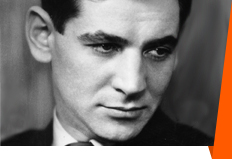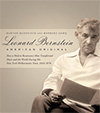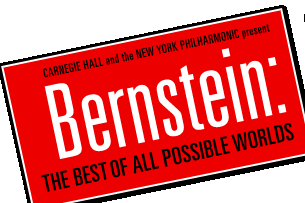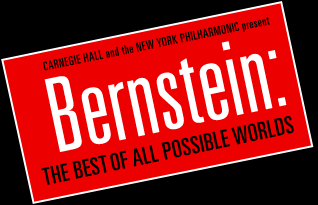
LEONARD BERNSTEIN
- Leonard Bernstein
- Stage & Film
- Concert Music
- The Conductor
- The Educator
- The Social Activist
- Bernstein’s New York
- Bernstein and Faith
- Bernstein at Carnegie Hall
- Bernstein and the New York Philharmonic
- Bernstein Memory Bank
- Bernstein Timeline
“It is impossible for me to make an exclusive choice among the various activities of conducting, symphonic composition, writing for the theater, and playing the piano … For the ends are music itself.”
Stage and Film »

His innate ability to join music and drama forever changed the landscape of American musical theater.
Concert Music »

As a serious composer, his creative output is nearly impossible to categorize, except for its distinct “Bernstein” sound.
The Conductor »

A last minute substitution at Carnegie Hall launched a larger-than-life international conducting career.
The Educator »

Perhaps his greatest gift was the ability to translate the language of music to generations of viewers, listeners, and performers.
The Social Activist »

From civil rights to nuclear disarmament to the end of the Vietnam War, Bernstein lived a life of effecting change.
Bernstein’s New York »

New York’s artistic vitality served as a catalyst and a backdrop for a number of memorable moments.
Bernstein and Faith »

As inseparable as his relationship to music was an unwavering and ecumenical devotion to faith and his Jewish roots.
Featured Video

Stephen Sondheim talks about Leonard Bernstein’s ability to work music into theater.
Stage and Film Multimedia
Bernstein Timeline
An interactive overview of Bernstein’s life and career.
View Timeline
Bernstein at Carnegie Hall
Did you know that between 1943 and 1990 Bernstein appeared at Carnegie Hall more than 430 times?
Discover more »
Bernstein and the New York Philharmonic
For nearly five decades Leonard Bernstein referred to the New York Philharmonic as his second family, leading the Orchestra in 1,246 performances …
Continue reading »
Leonard Bernstein: American Original

By Burton Bernstein— former New Yorker writer and Leonard’s brother—and the New York Philharmonic’s historian, Barbara Haws.
Buy now ![]()
© 2001–2008 Carnegie Hall Corporation
- Home
- |
- Multimedia
- |
- Press
- |
- Partners
- |
- Supporters





